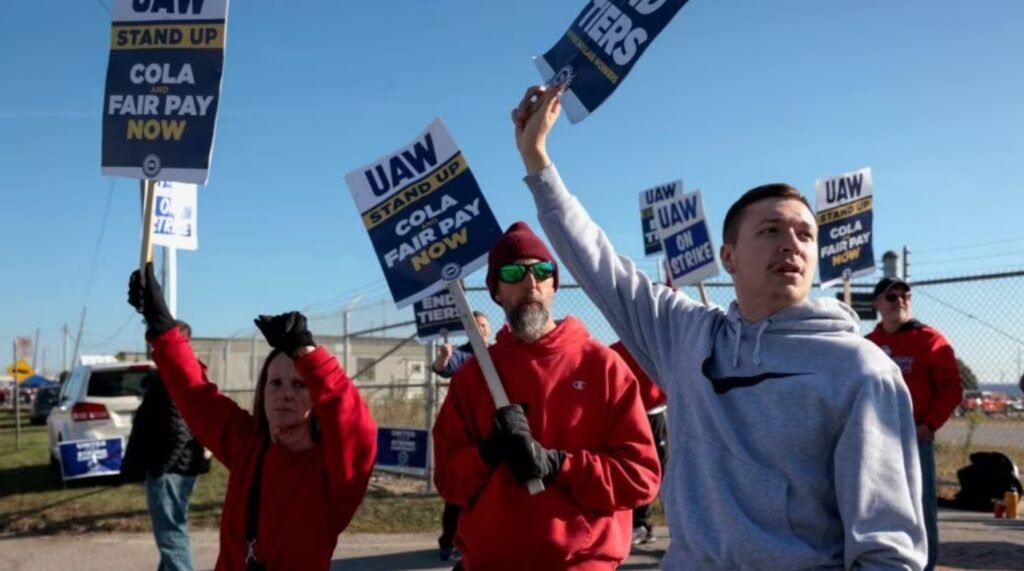The United Auto Workers (UAW) union has intensified its pressure on General Motors (GM) and Stellantis, the parent company of Chrysler, Dodge, Jeep and Ram, by expanding its coordinated strikes at 38 more facilities across the U.S. The union is demanding better wages, benefits and working conditions for its members, who have been working without a contract since September 14.
UAW Targets GM and Stellantis with More Disruptions
The UAW announced on Friday that workers at parts-distribution facilities at GM and Stellantis would walk off the job at noon Eastern time, adding to the strikes at factories at GM, Ford and Stellantis that began earlier this week. The union said that the walkouts were a response to the lack of progress in the negotiations with the automakers, which have been ongoing since July.

The union accused GM and Stellantis of failing to address its key issues, such as health care costs, job security, profit sharing, retirement benefits and investment in U.S. plants. The union also said that the automakers were trying to undermine its bargaining power by using temporary workers, outsourcing jobs and importing vehicles from Mexico.
The UAW represents about 150,000 workers at GM, Ford and Stellantis, but only about 60,000 of them are eligible to strike under the union’s constitution. The union has chosen to target GM and Stellantis with more disruptions because they have more U.S. market share and production capacity than Ford, which has been more cooperative in the talks.
GM and Stellantis Respond to UAW Strikes
GM and Stellantis have expressed their disappointment with the UAW’s decision to escalate the strikes, saying that they have been negotiating in good faith and offering competitive proposals. The automakers said that they have been trying to balance the needs of their workers with the challenges of the global auto industry, which is facing a chip shortage, rising costs, environmental regulations and technological changes.
GM said that it has offered to increase wages, improve benefits, invest $7 billion in U.S. plants and create 9,000 new jobs over the next four years. The company also said that it has agreed to recognize Juneteenth as a paid holiday and increase diversity and inclusion efforts.
Stellantis said that it has offered to increase wages, enhance profit sharing, maintain health care benefits, invest $12 billion in U.S. plants and create 12,000 new jobs over the next four years. The company also said that it has agreed to limit the use of temporary workers and increase their conversion to full-time status.
Both GM and Stellantis said that they respect the right of their workers to strike, but urged them to return to work as soon as possible to avoid further damage to their business operations and customers.
UAW Strikes Have Widespread Impact on Auto Industry
The UAW strikes have had a significant impact on the auto industry, which is already struggling with supply chain disruptions and lower sales due to the COVID-19 pandemic. According to industry analysts, the strikes have cost GM and Stellantis about $100 million per day in lost production revenue, and could also affect their suppliers, dealers and consumers.
The strikes have also raised concerns about the future of the U.S. auto industry, which is facing increasing competition from foreign rivals and electric vehicle makers. Some experts have warned that the strikes could erode the competitiveness of GM and Stellantis in the global market, and discourage them from investing in new technologies and products.
However, some experts have also argued that the strikes could benefit the U.S. auto industry in the long run, by improving the quality of life and morale of the workers, strengthening their loyalty and productivity, and enhancing their innovation and creativity.
